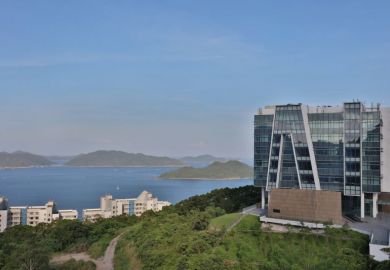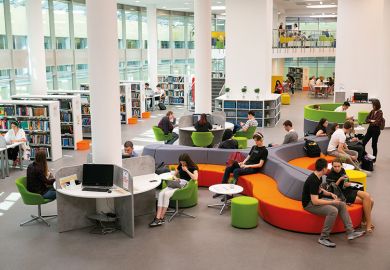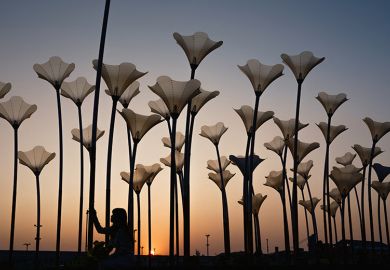Browse the THE Young University Rankings 2020 results
The University of Duisburg-Essen (UDE), formed by the merger of two universities in 2003, is one of the youngest and largest universities in Germany and has a fresh way of looking at things. We think in terms of unlimited possibilities instead of possible limitations. Located in the heart of the Ruhr metropolis, we have 11 faculties working to develop ideas for the future. We are strong on research and teaching, embrace diversity, promote academic potential and fight for genuine educational equality.
Times Higher Education has ranked UDE as the best young German university, confirming our view that not having a long tradition is an advantage. Our citation impact – we are fifth in Germany on this measure in the THE World University Rankings – shows that true strength in research is not a question of age. Quite the contrary: we have no old habits to break or traditions to dust off. We reinvent ourselves every day and come up with ideas with the future in mind.
We offer subjects from the humanities and social sciences as well as economics, engineering, the natural sciences and medicine. Because we see our university as a unified whole inclusive of all subjects and all members, we strive for an interdisciplinary network and for the extensive participation of all academics, employees and students in the challenge of shaping our future.
In the field of research, we prioritise the five interdisciplinary areas of nanosciences, biomedical sciences, urban systems and metropolitan areas, changes in contemporary societies, and water research.
UDE also has 12 associated institutes with important links to industry. These institutes benefit not only from a close relationship with regional partners but from excellent infrastructure at the university.
The majority of our students are first generation and we see ourselves as an innovative motor for the region. Consequently, UDE is committed to meeting its social responsibilities. In order to carry out our educational mandate and help drive the economic transformation of our region, we subscribe to national and international standards in the fields of research, teaching and management.
We adhere to the Humboldtian idea of marrying research with education. We create the best possible study and work conditions for all subjects and at all levels of study in order to offer an academic education based on science and research, striking out in new directions to do so. In designing our undergraduate and postgraduate degree programmes, we are guided by individual and societal requirements within the context of lifelong learning.
We also consider the diversity of our students and employees as a unique opportunity and use conscious management measures to promote inclusion. Gender equality is an integral part of these endeavours.
Like our former industrial region, our university is dynamic, ambitious and constantly changing. In ever more areas, we are counted among the strongest research universities in Germany. Because research and teaching are closely intertwined, our students have immediate access to new scientific discoveries.
Meanwhile, as a member of the University Alliance Ruhr, we work together with Ruhr University Bochum and TU Dortmund University to promote the Ruhr region as a hotbed for science, generating a unique profile, setting priorities and establishing scientific and organisational networks to create a great environment for our more than 100,000 students.
UDE is also a proud partner of the Aurora Universities Network, a platform for European university leaders, administrators, academics and students to learn from and with each other. Aurora’s goal is to match world-class academic excellence with societal engagement and impact.
Our young university is in a strong position but we plan to develop further. In particular, we can promote diversity even more effectively. This will benefit stakeholders in science, business and society as a whole.
Ulrich Radtke is rector of the University of Duisburg-Essen.
POSTSCRIPT:
Print headline: Agile in mind and body
Register to continue
Why register?
- Registration is free and only takes a moment
- Once registered, you can read 3 articles a month
- Sign up for our newsletter
Subscribe
Or subscribe for unlimited access to:
- Unlimited access to news, views, insights & reviews
- Digital editions
- Digital access to THE’s university and college rankings analysis
Already registered or a current subscriber?








